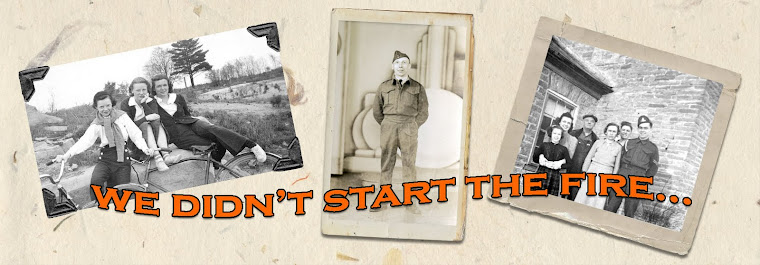I'd like to take some time to respond to a comment I received pertaining to my previous
post. I love reading the few comments that I receive but this
one, written by
French Panic, particularly irked me because I felt the writer did not fully understand my point of view. Alas, the rebuttal.
The beauty of Facebook is that all of the information stored on individual profiles can be accessed via the Internet which, barring all unforeseen circumstances, has a lifespan of many years to come. I recognize that digital sources are fallible. So do archivists and computer engineers - they are adapting to this realization. Google and Facebook are working to figure out where and how to store their massive caches. My point wasn't that Facebook should be hiring archivists to store profile information on software/hardware that will be obsolete in 2 years, but rather that Facebook accounts can be accessed easily over the Internet and that this
could benefit researchers, historians, and other archivists in the years to come
if the Internet is still available and Facebook allows this sort of access (perhaps in the same way the National Library and Archives allows access to its restricted materials upon the death of a donor or other stipulation). As it is, Facebook has amended their policy regarding deceased users. The previous policy was that an account was deleted after a 30 day "memorialization period", but after pressure from families and friends, the "memorialization period" is now
indefinite.
And yes, Facebook is a massive repository. The term repository refers to anything from a permanent archive collection to a garbage can that is emptied every week. The National Library and Archives, another massive repository, is constantly changing - accessioning and deaccessioning records all the time. Although Facebook users can add, change, or delete their profiles whenever they log in, the information they provide is similar to that which a historian would find in a diary written by an upper-class white woman of the 19th century. In fact, I think Facebook could provide historians with a broader view of the population with accounts created by people all over the world and of many different income brackets. Anyone that has access to the Internet (accessed via personal computers, library computers, friends' computers), can post pictures, a blog, or create a Facebook profile.
The difference between Facebook and the 19th century diary, however, is that the diary provides historians with a more personal perspective. As opposed to a diary, blogs and social networking websites are written and created with the knowledge that other people will read them. This does not take away from their value. These kinds of digital sources can shed light on a particular person's interests
as well as society as a whole - popular forms of entertainment, social and political debates, and how we interact with each other (Marshall McLuhan's "medium is the message" comes to mind). The information on Facebook, and more generally the Internet, can help historians and researchers to build a framework of our society.
The Internet has given us a way to learn about each other. French Panic was able to connect to my blog and paste his/her response to my previous post. It has opened up an avenue of debate that would not have previously existed.
If the Internet, and thus this debate, lasts for future generations to read, I wonder if they will look up my Facebook profile.

